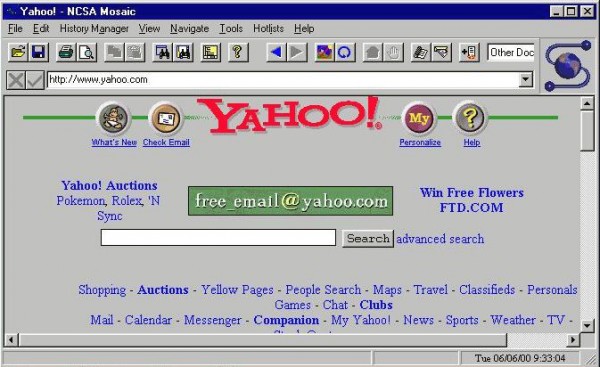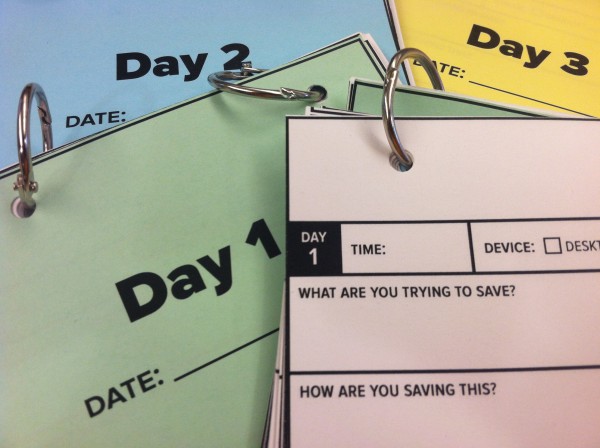There are lots of ways I can get to my favorite cat video through my browser, but at the end of the day, my browser is really just providing a means to an end. The browser is a tool that makes the vastness of the web a navigable place, and it can be reduced to two core functions: (1) search for something new and (2) revisit something. My research involves understanding the latter use case.
Do you remember the first browser you ever used? I have fond memories of using Netscape Navigator back in the day, but if you’re older than me, you might even remember using Mosaic—the first GUI browser.

Mosaic, 1992
Today’s browsers have slicker chrome and run a lot faster, but top-level features and interactions have remained fairly consistent for the last 20 years. The bookmark feature was initially designed and built into the browser to support saving content for later. However, the way we browse has changed a lot since the bookmark was first introduced in Mosaic as “hotlists”. As our browsing behavior continues to evolve, the dated bookmark metaphor becomes less and less useful for handling how we manage and make use of the information we collect over time.
Recent research by our team has indicated that bookmarks in Firefox for Android are rarely used and bookmarks in Firefox desktop are overly complex. Features like search accelerators, tabs, and history are cannibalizing the use of bookmarks as a mechanism for quickly revisiting content. In the mobile realm, applications serve as shortcuts to things we frequently access. Users are finding better ways of saving for later through bookmarking bookmarklets and extensions (i.e. Instapaper, Pocket), social bookmarking, and a variety of other platforms and services.
How does our habit of saving for later vary across different devices? What types of information do we save for later? What portion of saved information actually gets revisited, and why? What would it be like to browse the web without bookmarks? These are just some of the questions I’ll be exploring in my research. Next week, I’ll be recruiting participants for a diary study.

Diaries for my three-day study are ready to be mailed to participants
Participants will receive a “diary” and a set of parameters to follow for each day of the study. As the participants go about their daily routines, they’ll record their experiences in real-time by answering questions related to accessing and revisiting web content. On the third day, I will deprive participants the use of bookmarks to understand how this impacts their workflow (if at all) and observe what workarounds they may develop to compensate for the inability to use bookmarks.
It’s time we started to rethink how our browser supports the way we actually use the web today. I look forward to sharing my findings with you. Stay tuned!
Vikas Vadlapatla wrote on
wrote on
Brian Groudan wrote on
wrote on
Bertha wrote on
wrote on